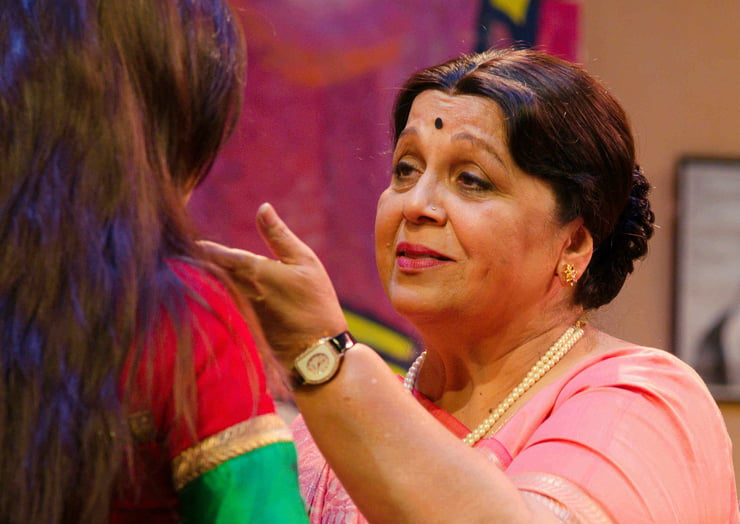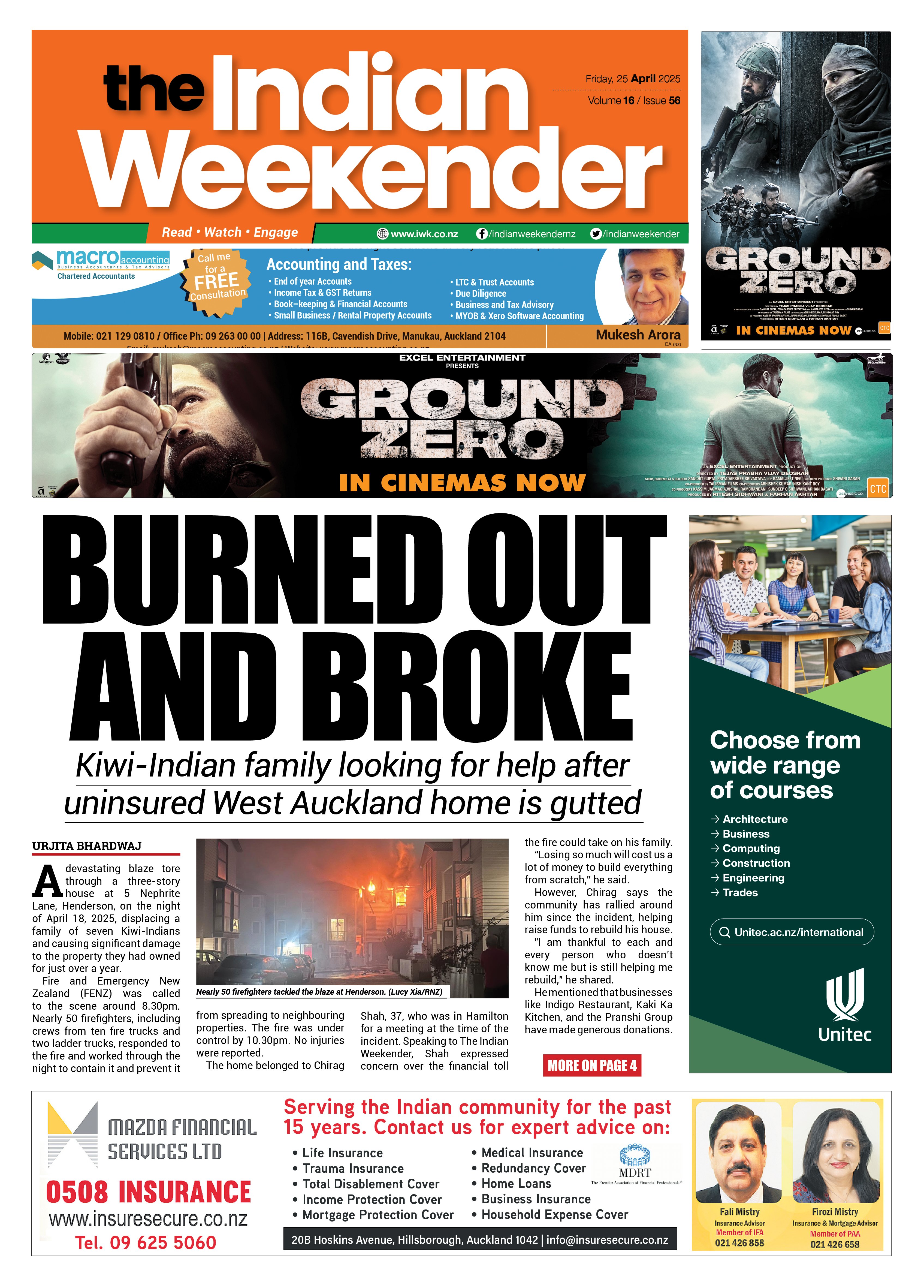In conversation with Rohini Hattangadi

Rohini Hattangadi is known for the strong award-winning roles she has portrayed in several Bollywood hits. She is best remembered as the mother of Sanjay Dutt’s character in the 2002 blockbuster Munnabhai MBBS, as Kasturba Gandhi in Richard Attenborough’s Gandhi—that earned her the BAFTA in 1982, and as Amitabh Bachchan’s stern mother in Agneepath, which won her the Filmfare Award for Best Supporting Actress in 1990.
The veteran actress was in Auckland last weekend for her globally successful Gujarati play Baa Tane Hu Kya Rakhu organised by V3 Events NZ. Indian Weekender spoke to her about her journey into cinema and theatre.
IWK: What do you like more, movies or theatre?
Rohini: Theatre, anytime. I trained in theatre, and I like to perform on stage. In theatre, my experience as Rohini Hattangadi becomes richer by day. In films, once a scene finishes, it is done, and it cannot change, but with performances on stage, you improve every day and every time.
IWK: Tell us a little about your first major break?
Rohini: I began in 1976 as a professional actor. I graduated from National School of Drama from Delhi (1971–74). After NSD, I was doing plays and Syed Mirza, who knew me as a theatre actor, asked me if I would work in a film and I said yes. After that, I worked on films such as Arvind Desai ki Ajeeb Daastaan, Albert Pinto ko Gussa Kiun Aata Hai, and Chakra before I was selected for Gandhi.
IWK: How was it working with Sir Ben Kingsley in Gandhi?
Rohini: Ben Kingsley is also from the theatre. He is an actor from Royal Shakespeare Company. I went for a screen test to England, and it was a lovely experience. Sir Richard Attenborough took me to Ben Kingsley’s room and introduced me to him and then left us to see the set. Back in India, we had this practice of rehearsing a dialogue, and I was nervous because I was not sure how to approach him. But when he asked if we should rehearse the lines together, I realised that actors all over the world are the same. We struck a chord then and started rehearsing.
During our time in Delhi for shooting, we learnt to use the charkha (spinning yarns) and read and discussed Gandhi. That is how we understood each other better as well as the characters.
IWK: What are your views on the evolution of cinemas in the last couple of decades?
Rohini: Previously, there was a lot of emphasis on content and story, and nowadays, I don’t see much meaningful cinema commercially.
IWK: A film that you like for its content and structure?
Rohini: From the top of my head, I can say Lagaan is one. It has a strong narration and structure. Fashion was also good cinema. We have developed so much in technology that we have lost the maturity in film-making and stories.
IWK: An actor or a director you would like to work with?
Rohini: Every actor or a director is different and when you work with them, you get to know more and understand them.
IWK: On a lighter note, what is your favourite food?
Rohini: Just food! Food is my favourite, anything delicious.
IWK: Your favourite pastime?
Rohini: I love being at home and play Sudoku and Candy Crush.




